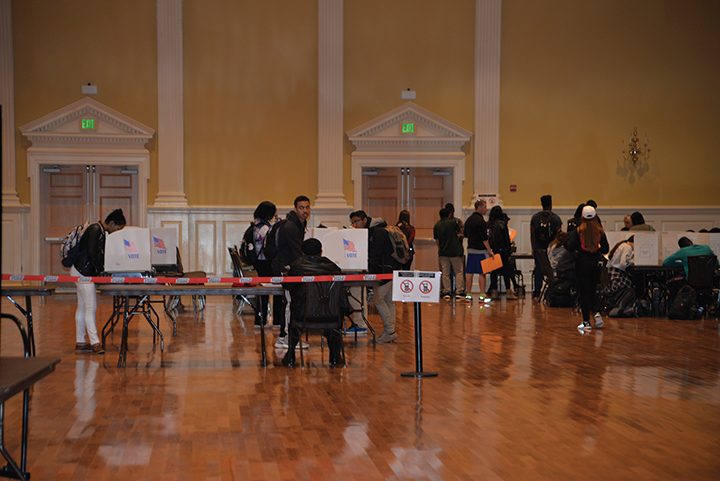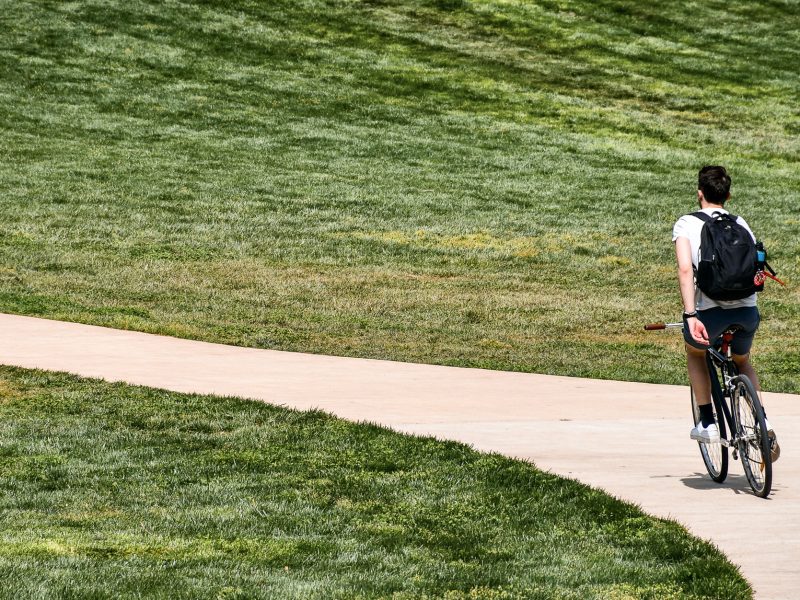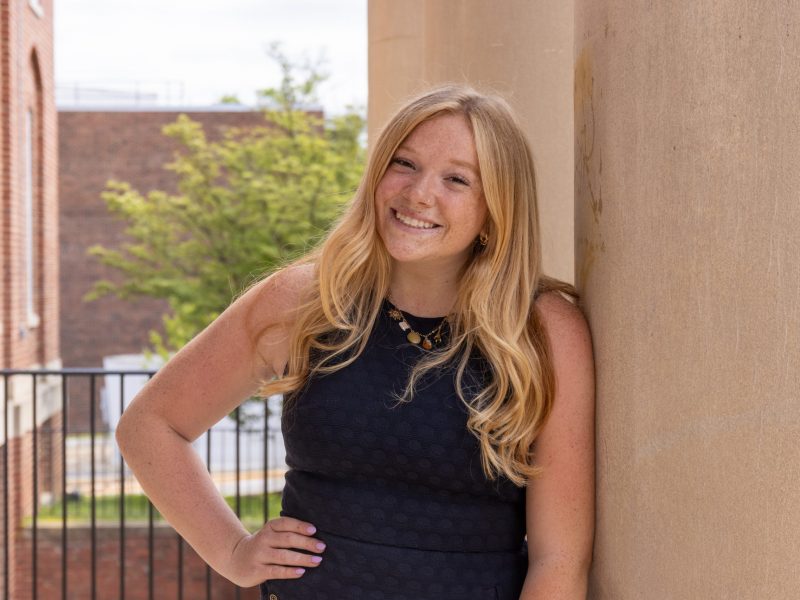Excluding provisional ballots, nearly 2,450 people cast their votes in Stamp Student Union and Ritchie Coliseum for the election on Tuesday, according to election judges at both polling locations.
About 2,200 students total voted in Stamp’s Grand Ballroom, coming close to breaking 2012’s record of 2,321 ballots cast and soaring above 2008’s total vote count of 1,566. Out of those Stamp votes, about 750 were provisional.
Not including provisional ballots, 1,202 students voted for Clinton, 138 students voted for Trump, 41 students voted for Libertarian Party candidate Gary Johnson and 30 students voted for Green Party candidate Jill Stein.
“I think having a voting place at Stamp is a great idea — it’s so easy for students,” university President Wallace Loh said after the polls had closed. “During the time I was here I would say around 220 students or so per hour came … the civic engagement of Terps is very impressive.”
When polls closed at 8 p.m. at Ritchie, 980 people had voted. They included 209 Republicans, or about 21 percent of voters, and 537 Democrats, or about 55 percent of voters.
Various student organizations on the campus contributed to voter registration initiatives leading up to Election Day on Tuesday. Terps Vote coalition, which includes organizations such as the Student Government Association, MaryPIRG, the Residence Hall Association, College Democrats and College Republicans, was able to register 4,847 students for this election, according to junior government and politics major and SGA representative Georgie Jones.
Members from the RHA, SGA and Graduate Student Government were also present at Stamp throughout the day on Tuesday, offering voters snacks and “make sure everyone is energized,” said Jonathan Allen, a sophomore enrolled in letters and sciences who intends to major in economics next semester.
SGA President Katherine Swanson said overall, the number of students who voted at Stamp and Ritchie was a “really good turnout.”
“It’s a number I think could be improved on, but I’m really proud of it,” Swanson said.
This election was unique in that it brought about a new voting system, which electoral judge Samuel Uwhemo, Jr. said made everything more accessible and faster.
“The new system was able to process a person quicker,” he said. “It would look up a person’s last name and be able to get all of the information for that person. For the old system, you had to put in everything manually.”
He added there were a huge number of provisional votes this year, and that the “majority of the lines were in the provisional section.”
Emmanuel Korvah, a senior sociology major, cast his provisional ballot “to make a change.”
“I feel like everyone’s voice should be heard,” Korvah said. “It’s my right to vote, and I should exercise that.”
Lindsey Wright, a junior environmental science and technology and government and politics major, voted for the first time in Stamp on Tuesday.
“Because it is my first time being able to vote in a presidential election, I felt like voting was something I had to do,” she said. “There is a lot riding on this election specifically, and I just had to come out and do my civic duty.”
Matthew Rogers, a junior government and politics major, said he believes that everyone should vote to have their voices heard.
“I strongly agree with the saying that, ‘Democracy represents the voices of those who choose to participate’,” he said. “I believe that it is better to be active in the making of the future because a winner will be decided whether or not you decided to take part in the voting process.”



